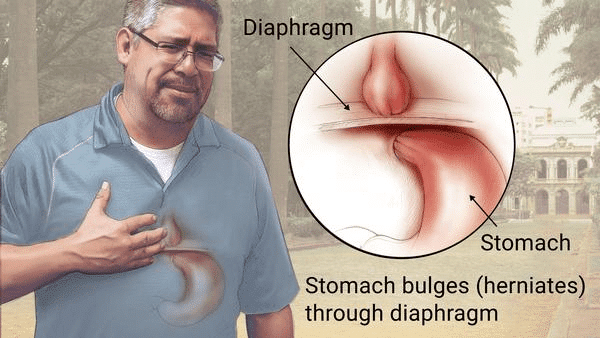What is a Hernia?
Particularly, at IBI’s Advanced Hernia Center, our board-certified surgeons. Above all, skillfully use the very latest technologies and procedures to treat different types of hernias and hemorrhoids. Consequently, the specialists treat all patients with the same detailed and compassionate care that your physician would provide.
Certainly, a hernia is a hole in the abdominal fascia, the strong connective tissue that your muscles sit on. In reality, they can develop in areas of weakness in the abdominal fascia.
How Serious Can They Be if Left Untreated?
Often, a part of the intestine pushes through this tear in the abdominal wall. Evidently, you can see a soft bulge underneath the skin where it has occurred. Conversely, the risk is that this bowel can become stuck in the hernia. Eventually, leading to an incarcerated hernia. Unquestionably, this can cut off the blood supply. Then it can quickly, within the space of 6 hours. Subsequently, go from an incarcerated to a strangulated hernia.
Moreover, this strangulation of the blood supply leads to necrosis (death) of this piece of bowel. Additionally, spillage of the bowel contents can lead to sepsis and even death. Undeniably, this is why surgeons usually elect to repair them surgically to avoid these complications.
Indeed, a small hernia is amenable to a minimally invasive outpatient surgical repair. However, large hernia defects may require a full abdominal wall reconstruction. Even so, it gives you back a functional abdominal wall. Nonetheless, our expertise in understanding, evaluating, and surgically treating complex conditions. That means you’re in the most experienced hands.
Different Types of Hernias
Equally important, they come in different shapes and sizes. They are located in many different parts of the abdominal wall.

Inguinal Hernia
Firstly, this is the most common type in people of all genders. However, it is three times more likely to occur in men. In males, it happens when an opening in the abdominal wall from the passage of the testicle into the scrotum. Although, it does not close normally before birth or reopens later in life. What’s more, in women, this canal contains the round ligament (a suspensory ligament for the uterus). Furthermore, it is much smaller but still exists and can reopen later in life.
Femoral Hernia
Again appears as a bulge near the groin or thigh. However, this is not a common type. Usually occurs in older people or females with a thin physique. As a matter of fact, it is due to an enlargement of the small hole in the abdominal fascia. Regardless, needs for the major blood vessels of your leg. Only less than 5% of all hernias are femoral.

Incisional Hernia
Similarly, occurs months, or years, after surgery in the area overlying the scar. Next, the size of this type depends on the initial surgery.
Epigastric Hernia
Likewise, normally present in the middle of the belly between the breastbone and the belly button. Not only in the mid-line, muscle does not cover the fascia. Making it a natural area of weakness. On the other hand, fat or intestine can push through a weak spot in the abdominal wall.
Hiatal Hernia
Whereas, a hiatal hernia is the most common form of a diaphragm. The diaphragm is a large flat muscle that separates the chest from the abdomen. A normal communication between the chest and the abdomen. Even supposing, allows the esophagus to enter into the abdomen and connect to the stomach. Over time, this area can stretch. Ultimately part of the stomach can bulge up through the diaphragm and into the chest. Many people don’t feel symptoms. However, heartburn can be a common symptom.

Spigelian Hernia
It is located at the lateral edge of the rectus muscle (6-pack muscle). The lateral edge of the rectus muscle is what we call the semilunar line. Where the semilunar line intersects with the arcuate line is where Spigelian occurs. The arcuate line is usually about 2cm below the belly button and runs transversely.
It represents where the posterior rectus fascia ends. This is an area of weakness. It’s a location where the fascia meets and muscle doesn’t cover it. Comparably, Spigelian hernias are rare. Though, sometimes harder to diagnose with a physical exam alone. As they don’t always give a normal bulge as you get with most hernias.
Lumbar Hernias
Posterior abdominal wall hernias that present with bulge laterally. These are the result of trauma, prior surgery, or sometimes congenital.
Obturator Hernia
It is a rare hernia of the pelvic floor. Abdominal contents herniate into the obturator canal. It can be difficult to diagnose on physical exam. Besides this, requires a high degree of suspicion on the part of the clinician. Often, they also require a CT scan of the pelvis to correctly diagnose.
Innovative Procedures for the Best Outcomes
At our Advanced Center, we practice the latest, most advanced procedures for the repair of simple and complex hernias. Without a doubt, we specialize in complex abdominal wall reconstructive techniques to restore abdominal function caused by recurring hernias. These techniques are beneficial. We may only need a more involved approach when scar tissue or an abdominal wall catastrophe is present. We offer state-of-the-art approaches to help provide patients with proven solutions and peace of mind.





